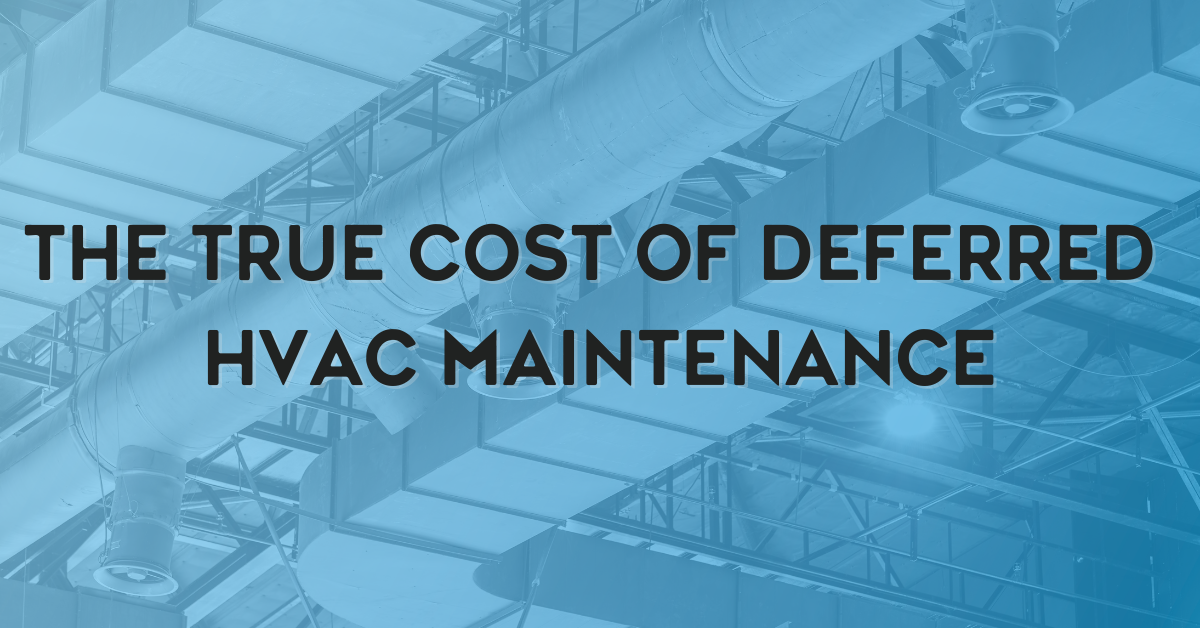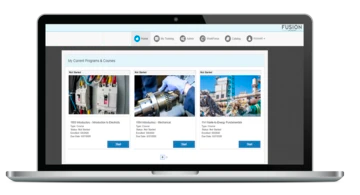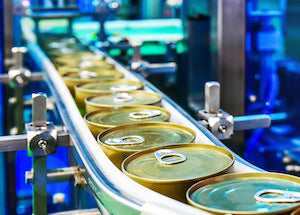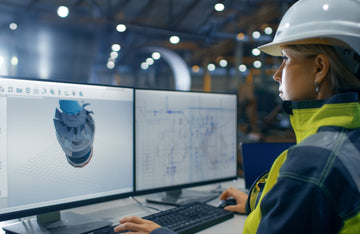
Maintenance departments are often forced to operate under tight budgets, and facility managers are equally often under pressure from upper management to cut costs. This desire to save money has created the horribly-flawed concept of deferred HVAC maintenance. Here we’ll discuss what deferred maintenance means, it’s not-so-hidden costs, and the HVAC dangers that can result.
What Does Deferred Maintenance Mean?
Deferred HVAC maintenance is a new term for that old adage, “if it ain’t broke, don’t fix it.” On the surface it makes sense—if the HVAC system is running, why expend the resources associated with preventative maintenance?
The answer is clear to any experienced HVAC technician. Just because an HVAC system runs, doesn’t mean there’s nothing wrong with the system. In fact, the longer you defer maintenance, the greater the risk a minor problem will fester in the system, eventually resulting in catastrophic failure.
Let’s not sugarcoat this. Deferred HVAC maintenance is a short-sighted, dangerous approach to maintenance that can backfire spectacularly. Ask a qualified HVAC technician, “what does deferred maintenance mean” and you’re likely to get a blunt, one-word answer: “Stupidity.” It’s a brutal assessment, but considering the potential consequences, an all-too accurate one.
HVAC Dangers
Deferred maintenance may sound like a money-saver, but it’s actually the costliest way to run an HVAC system. Problems that would be found and resolved with preventative maintenance quickly snowball into serious issues and costly emergency repairs.
Even worse, unnecessary wear and tear caused by ignoring—excuse us—deferring maintenance can significantly shorten an HVAC system’s life. When a $150,000 HVAC system dies after a mere decade, chances are very good deferred maintenance was a factor. Chances are also good the facility manager is being forced to explain the failure to upper management, with predictably negative results. Careers have ended for much less.
Energy Losses
Even if your system is running, deferred maintenance is draining your budget. An HVAC system consumes 40 percent of a facility’s total energy use. Without preventative maintenance, wear and tear reduces system efficiency by 5 percent every year, putting a strain on energy bills as well as equipment.
Productivity Issues and Health Risks
Employees are most productive in a healthy, comfortable environment. If your HVAC system isn’t running at peak performance, it’s more difficult to maintain that environment. Employees may be too hot or too cold, allergens and viruses may spread through the ductwork, and strange smells and loud noises from struggling HVAC systems can distract employees from tasks.
In addition to causing illnesses and allergies, deferred maintenance holds the possibility of very real HVAC dangers. If an unmaintained system includes cooling towers, a facility puts its employees or residents at risk of Legionnaire’s disease—and itself at risk of fines and legal action. And yes, the risk of electrical fires and injuries due to failing parts also rises with deferred maintenance.
All these problems can be solved with a thorough preventative maintenance program, as well as reducing overall repair and maintenance costs. Don’t fall into the trap of deferred maintenance. You’ll regret it—and probably sooner rather than later.
Want to learn more? Find details on our HVAC Workshop seminar here.






Comments
Sorry, no comments found for this article